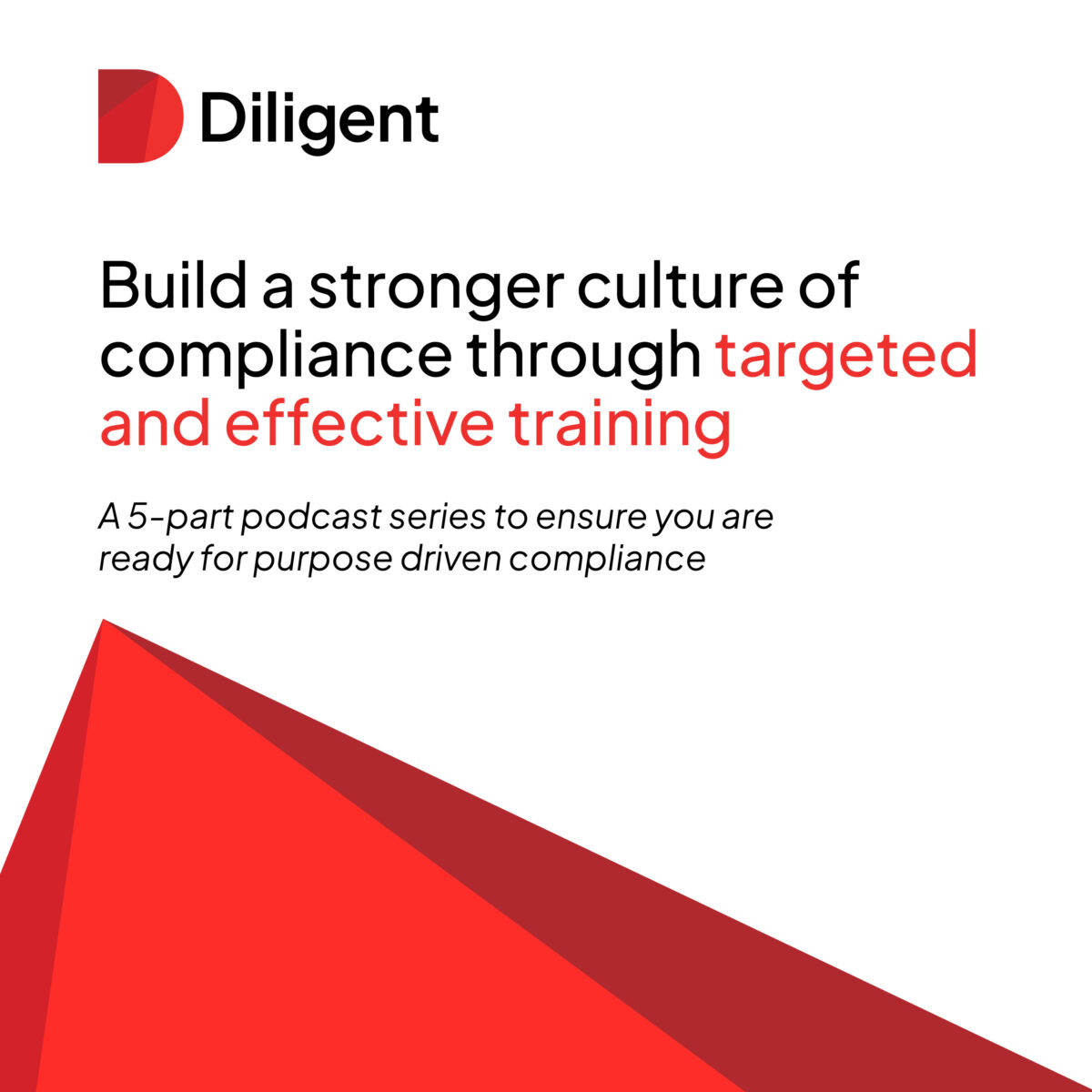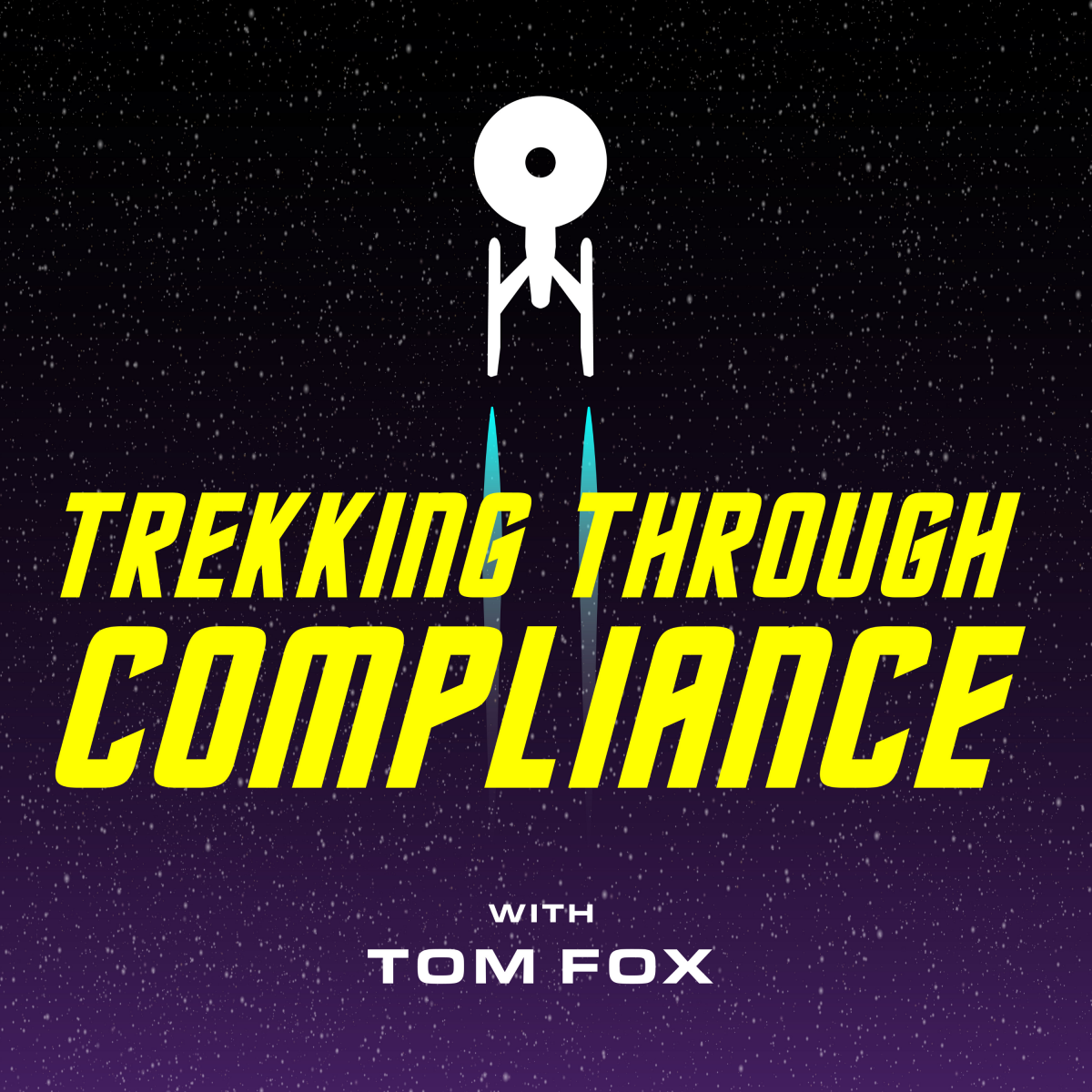Welcome to a special 5 part blog post series on building a stronger culture of compliance through targeted and effective training, sponsored by Diligent. Over this series, Tom Fox visits with Kunal Agrawal, Director of Customer Success at Diligent; Kevin McCoy, Customer Success Manager at Diligent; Jessica Czeczuga, Director, Compliance and Ethics at Diligent; Andrew Rincón, Client Director at Diligent; and David Greenberg, former CEO and Special Advisor at LRN and Director at International Seaways. Over this series, we will consider the importance of ongoing communications, the value of targeted training, training third parties, and the role of the Board of Directors. In this Part 5, we discuss the role of the Board of Directors in a compliance program.
Navigating the complex corporate governance and compliance world is challenging but essential for board members. Ensuring the company operates within legal, ethical, and social confines is vital to effective board governance. Boards that fail to achieve high compliance standards can suffer reputational damage, financial penalties, and even legal consequences. It is, therefore, critical for board members to engage with the importance of their oversight role and invest in the necessary education and best practices to ensure they effectively fulfill this responsibility. Here are the key steps:
1. Understand the Board’s oversight responsibilities.
2. Establish strong communication with management.
3. Ensure compliance programs are integrated into the company’s DNA.
Understand the Board’s oversight responsibilities. Board members ensure a company’s ethical standards, compliance, and performance. Understanding a Board’s oversight responsibilities is paramount to effectively governing and managing the organization. Every Board has a fiduciary duty to protect the stakeholders’ interests and ensure the company’s compliance with laws, regulations, and policies. To meet this legal requirement, Board members should know current best practices, emerging trends, and the legislative and regulatory landscape and be prepared to ask tough questions, follow up, and support management in executing the company’s plans.
Greenberg discussed the importance of a healthy relationship between the Board and the Chief Compliance Officer (CCO). Greenberg emphasized that the role of the Board is one of oversight rather than execution. This entails the need for ongoing dialogue and frequent reporting by the CCO to ensure the Board is informed of the company’s activities, risks, and potential blind spots. Greenberg also recommends that oversight committees take a hands-on deep-dive approach to identify and address potential issues, ensuring the compliance program is ingrained within the company culture and business strategy. Companies must find the appropriate committee with the right people and relevant interests to oversee compliance and advocate for common membership across committees to ensure strategic integration and prevent fragmentation. For Board members, understanding their oversight responsibilities is essential to foster robust corporate governance, risk management, and compliance.
Establish strong communication with management. Establishing strong communication with management is critical for an effective board oversight process. This key step involves board members working closely with senior management and the CCO to ensure that all compliance-related matters are addressed promptly and accurately. By fostering a healthy rapport with management, Board members can actively engage in oversight and be more proactive in remedying compliance-related issues. This collaborative relationship between the Board and management is essential for companies to maintain compliance with laws and policies, ultimately safeguarding the organization’s reputation and performance. Greenberg emphasizes the importance of strong communication between the compliance officers and the Board.
CCOs should develop close relationships with board members, much like senior managers. Greenberg noted this could involve CCOs meeting with board members outside of scheduled meetings to discuss concerns or potential issues. By doing so, a CCO can build trust and foster open communication, allowing board members to comprehensively understand the company’s compliance efforts. Greenberg also emphasized the value of having the right committee and membership, which includes individuals with the background, interests, and time necessary to effectively carry out their oversight duties. This key step is vital for board members because open and direct communication with management enables the Board to strategically address compliance matters, resulting in improved oversight and risk mitigation. Moreover, when board members have a strong rapport with management, they can proactively identify and address any issues before escalating.
Ensure compliance programs are integrated into the company’s DNA. In successfully executing their compliance oversight duties, Boards must ensure that their compliance programs are integrated into the company’s DNA, or as the DOJ says, it’s all about culture. Such integration fosters a strong culture of compliance, which is crucial in minimizing misconduct, reducing legal risks, and protecting the organization’s reputation. By incorporating compliance as a core element within the company’s strategic planning, daily operations, and employee training, boards can better manage risks and ensure adherence to relevant laws, regulations, and policies. Further, a fully integrated compliance program will enhance overall corporate performance, customer trust, and employee engagement.
For a Board to effectively exercise its oversight duties, compliance programs should be tailored to the organization’s business strategy, culture, and resources. The relationship between the Board, senior management, and the CCO can facilitate effective communication and better coordination in addressing critical ethics and compliance matters. The Board must ask tough questions and dive deep into possible issues to ensure transparency and accountability. By embedding compliance within the organization’s structural and cultural fabric, boards can create a robust environment that discourages misconduct while promoting transparency, accountability, and ethical behavior. This safeguards the company’s reputation, financial performance, and regulatory compliance. Ensuring seamless integration of compliance programs is a vital obligation for the boards, enabling them to effectively fulfill their oversight responsibilities and protect the organization’s long-term interests.
For Board members, the importance of robust oversight and compliance cannot be overstated, especially in a world where regulatory scrutiny grows more intense by the day. By following these steps, you can hone your understanding of the Board’s oversight responsibilities, establish solid communication channels with management, and embed a culture of compliance across your organization. Equipping yourself with these essential practices empowers you to tackle complex compliance challenges head-on and steer your organization toward success. As you continue sharpening your oversight skills, you will foster a resilient compliance framework that safeguards your organization and its stakeholders.
For more information, go to Diligent.com.








